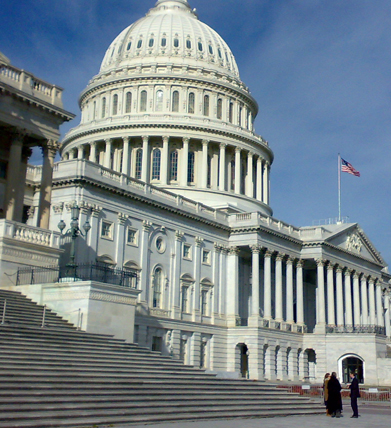By: Jack Minchew
Sometimes overshadowed in major presidential elections are the races on the lower part of the ballot. Often these races are less controversial or partisan, so they draw less attention from voters. This year, however, Virginia voters have an opportunity to help decide which party controls the U.S Senate. The 2012 Senate election is a far cry from non-partisan or uncontroversial, with both major parties nominating top tier candidates and drawing relatively unprecedented campaign expenditures from out of state Political Action Committees, or their more powerful siblings, the infamous SuperPACs. In a tight race that pits two former governors against each other, (Republican George Allen and Democrat Tim Kaine) the Virginia Senate race is unlikely to raise the level of political discourse in the commonwealth.
The Democratic candidate for U.S senate is the former Governor of Virginia and chairman of the Democratic National Committee (DNC), Tim Kaine. Kaine served one term as governor from 2006-2010 due to Virginia’s ban on consecutive governor terms, and then continued his term as chairman of the DNC from 2009 to 2011. Kaine is considered by many to be a relatively moderate “Virginia Democrat” in the style of his highly regarded predecessor Mark Warner, and though Kaine is certainly attempting to position himself as a moderate, his position as DNC Chair and his close connections to President Barack Obama have been presented by his opponents as evidence to the contrary. Kaine’s campaign strategy relies primarily on touting his record as governor during the recession, and emphasizing his willingness and knowledge in working across the aisle. Kaine has been attacked in numerous Republican ads as being a “part-time governor” during his last year in office when he was rumored to have been spending more time as DNC chair than as Governor, and as being a “yes-man” for President Obama, siding with him on almost all issues. Allen and his supporters have also attacked Kaine for attempting to slash funding for Northern Virginia schools as Governor and for supporting numerous tax increases during a recession.
After a short and unsurprising Republican primary, former Senator and Governor George Allen was nominated to be the Republican Party candidate for U.S. Senate. Unlike his opponent, Allen has served at the federal level before, serving as a Virginia Senator from 2001-2007. Once mentioned as a potential presidential candidate and as a rising star in the Republican Party, Allen has since fallen from national attention after he lost re-election to the Senate to Jim Webb, a relatively weak Democratic challenger, after the unintentional uttering of a racial slur at an opposing political operative. This election is Allen’s attempt to reclaim his senate seat. Democratic supporters have since attacked his supposed history of racial prejudice and his persona as a “good ol’ southern boy”. Allen’s bid for Senate is based on his record as a very successful Virginia governor, and the discontent with congressional Democrats, including the increased call for deficit reduction. Kaine has attempted to attack Allen from the right for his support of increased federal spending while in Congress, and for being hypocritical about cutting the debt.
While this election is considered by virtually all political observers to be a complete toss-up, Kaine has clung to a solid lead in polling data for most of the election, and continues to lead, despite Republican Presidential Candidate Mitt Romney’s recent leads in Virginia polling. This represents a number of Virginia voters who support a split ticket, voting against President Obama and against Gov. Allen. As of now, if nothing changes, less than a week before the election, it appears that Kaine will win, based largely on his attractiveness to independent voters, who might support a split ticket.






